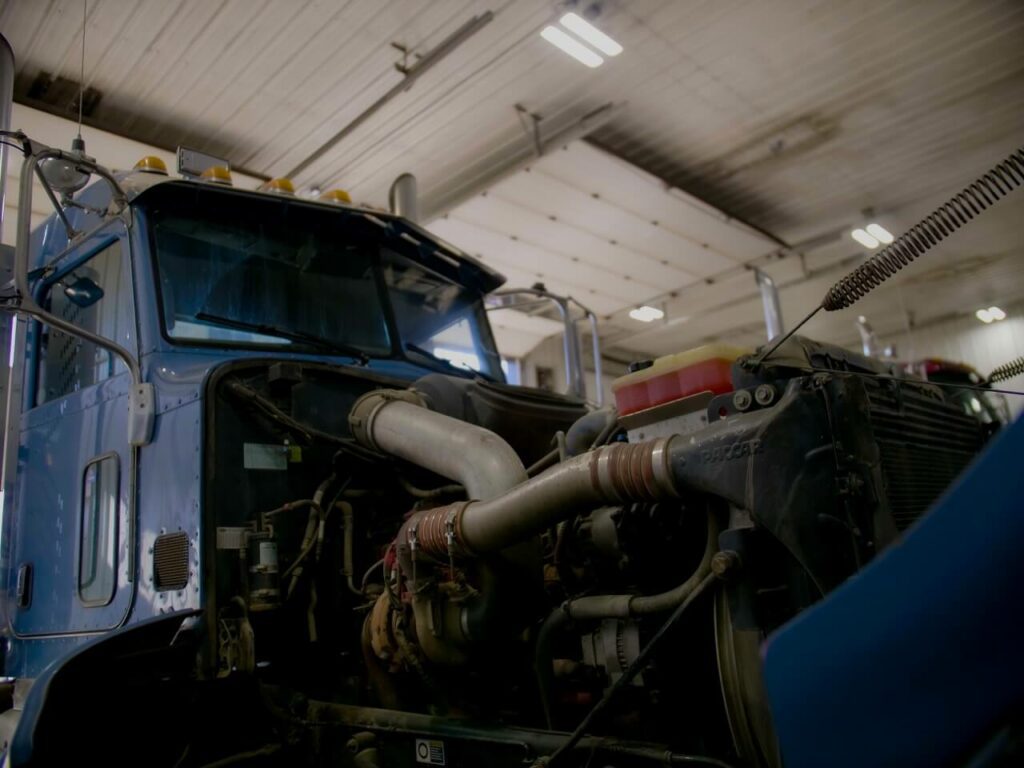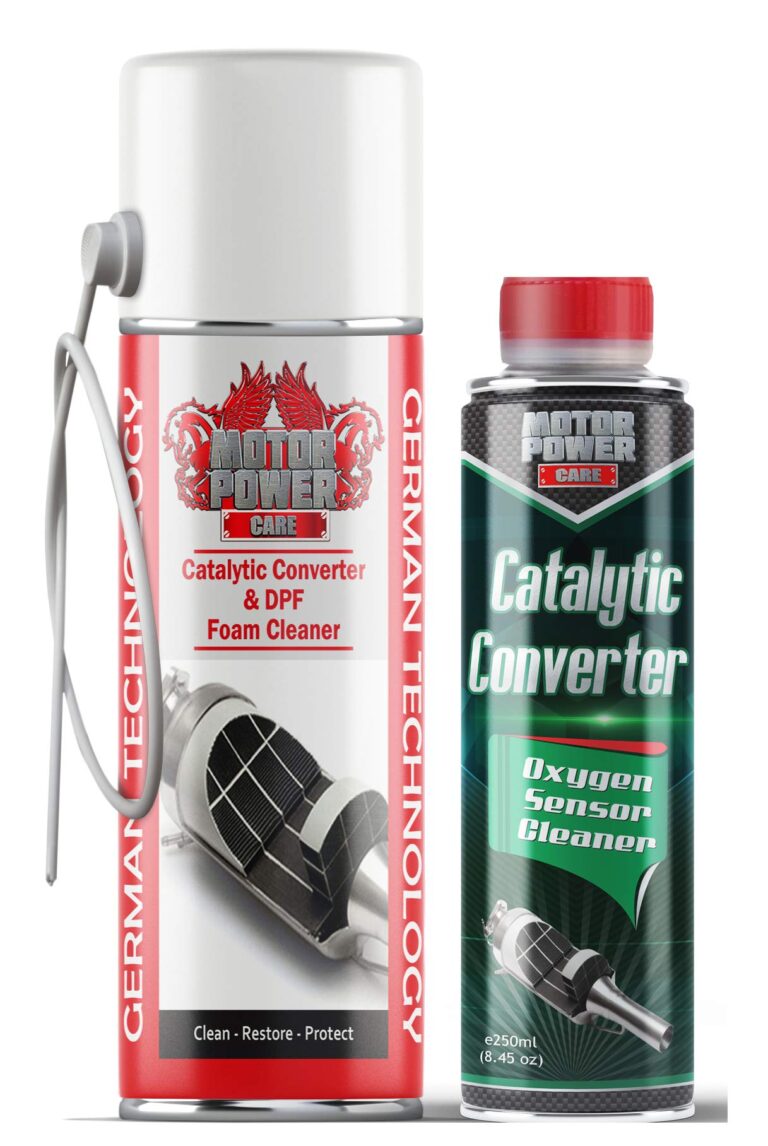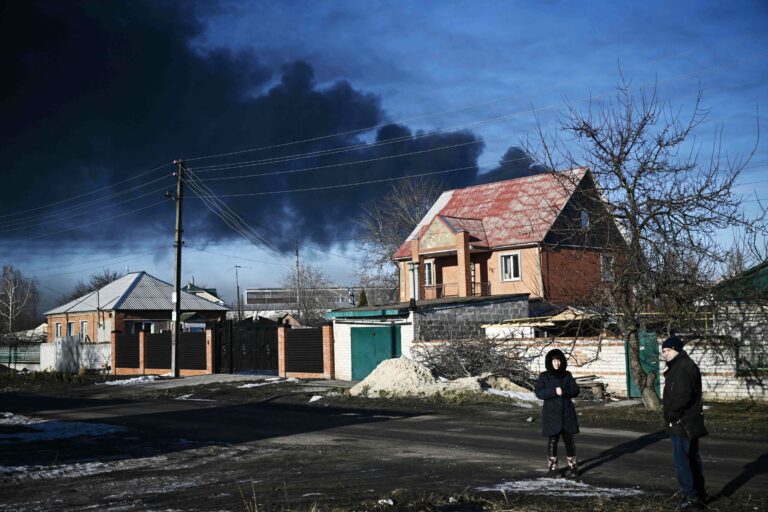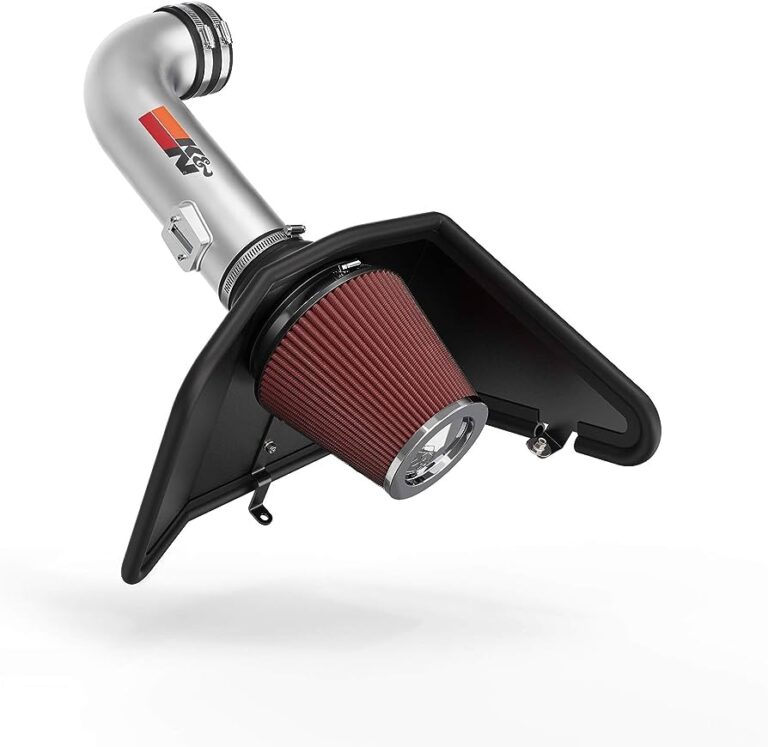What Happens If Your Catalytic Converter is Clogged: The Hidden Dangers
If your catalytic converter is clogged, it can cause a decrease in engine performance and fuel efficiency. The buildup of pollutants can also lead to emission problems and potential damage to the engine.
Signs Of A Clogged Catalytic Converter
There are several signs that indicate a clogged catalytic converter in your vehicle. One of the most noticeable signs is poor engine performance and reduced power. When the catalytic converter is blocked, it restricts the flow of exhaust gases, resulting in a decrease in engine power and performance.
Another indication of a clogged catalytic converter is increased fuel consumption. The reduced exhaust flow causes the engine to work harder, leading to more fuel being burned. This can result in decreased fuel efficiency and the need for more frequent refueling.
You may also hear a rattling noise coming from the exhaust system if the catalytic converter is clogged. This noise is caused by the buildup of exhaust gases hitting the blockage and creating vibrations.
If you suspect that your catalytic converter is clogged, it’s essential to get it checked and repaired by a qualified mechanic. Ignoring a clogged catalytic converter can lead to further damage to your vehicle’s engine and emissions system.

Credit: www.cashforyourgold.co.uk
Potential Damage To Engine And Exhaust System
htmlCatalytic converters play a crucial role in reducing harmful emissions from your vehicle’s exhaust system. However, if your catalytic converter becomes clogged, it can lead to serious consequences. One such consequence is the overheating of the engine. When the catalytic converter is clogged, it restricts the flow of exhaust gases, causing increased pressure and heat buildup. This excess heat can result in damage to internal engine components, including the valves, pistons, and cylinder heads.
In addition to engine overheating, a clogged catalytic converter can also lead to the melting of internal components. The high temperatures generated by the restricted exhaust flow can cause the catalytic converter’s internal ceramic honeycomb structure to melt, resulting in blockages and further exacerbating the issue.
Furthermore, a clogged catalytic converter can impair the functioning of the oxygen sensors. These sensors detect the level of oxygen in the exhaust gases and provide feedback to the engine control unit for proper fuel-air mixture adjustments. When the catalytic converter is clogged, it can lead to inaccurate readings from the oxygen sensors, causing engine performance issues and potentially triggering the check engine light.
If left unaddressed, a clogged catalytic converter can not only lead to substantial damage to your vehicle’s engine and exhaust system but also result in decreased fuel efficiency and increased emissions. Regular maintenance and prompt detection of any issues are crucial in ensuring the optimal functioning of your vehicle’s catalytic converter.
Implications For Emissions And Environment
| Implications for Emissions and Environment | |
|---|---|
| Increased emission of pollutants | A clogged catalytic converter can lead to an increase in the emission of pollutants. When the converter is clogged, it cannot effectively convert harmful gases, such as carbon monoxide and nitrogen oxide, into less harmful substances. As a result, these pollutants are released into the atmosphere, contributing to air pollution. Not only does this affect the quality of the air we breathe, but it also poses health risks, particularly for individuals with respiratory conditions. |
| Failure to meet emissions standards | A clogged catalytic converter can also cause a vehicle to fail emissions tests. As modern vehicles are equipped with onboard diagnostics (OBD) systems, a clogged converter can trigger a “check engine” light, indicating a potential issue with emissions. In many regions, vehicles must meet specific emissions standards to be road-worthy. Therefore, a clogged converter may result in the vehicle being deemed non-compliant, requiring repairs or replacement before it can legally be driven. |
| Environmental impact | The environmental impact of a clogged catalytic converter goes beyond increased emissions. The release of pollutants into the atmosphere contributes to global climate change, damages ecosystems, and harms wildlife. Additionally, the improper disposal of faulty converters can lead to environmental contamination. They contain precious metals, such as platinum, palladium, and rhodium, which can be recovered and recycled. Proper disposal and recycling of catalytic converters are essential to minimize their environmental impact. |
Reduced Braking Efficiency
When your catalytic converter is clogged, it can lead to reduced braking efficiency and impaired braking system performance. This is due to the fact that a clogged catalytic converter can cause an increase in back pressure in the exhaust system, making it harder for the engine to expel exhaust gases. As a result, the engine may not be able to produce enough power for the braking system to operate at its optimal level.
One of the implications of impaired braking system performance is an increased stopping distance. With a clogged catalytic converter, it may take longer for your vehicle to come to a complete stop after applying the brakes. This can be especially dangerous in emergency situations where stopping quickly is crucial.
Increased Risk Of Fire
The accumulation of unburned fuel and the resulting high exhaust temperatures are the main causes of an increased risk of fire when your catalytic converter is clogged. When a catalytic converter becomes clogged, it restricts the flow of exhaust gases, causing fuel and exhaust particles to accumulate. As a result, the temperature within the catalytic converter rises, leading to the potential ignition of the unburned fuel.
This can be particularly problematic if you frequently drive short distances or in stop-and-go traffic, as it reduces the opportunity for the catalytic converter to reach its operating temperature and burn off accumulated debris. Additionally, a clogged catalytic converter can cause engine misfires and lead to poor fuel economy and reduced performance.
Regular maintenance and prompt attention to any signs of a clogged catalytic converter are important to ensure the safety and optimal functioning of your vehicle. If you notice decreased engine performance, increased fuel consumption, or the smell of sulfur coming from your exhaust, it is essential to have your catalytic converter inspected and cleaned or replaced if necessary.
Health Hazards From Increased Exhaust Fumes
When your catalytic converter is clogged, it can lead to health hazards due to increased exhaust fumes. Exposure to harmful gases and chemicals emitted by a clogged catalytic converter can have detrimental effects on your health. The inhalation of these gases can cause respiratory issues such as coughing, wheezing, and shortness of breath. Additionally, individuals with existing respiratory conditions may experience worsened symptoms.
Clogged catalytic converters can also contribute to the release of allergens into the air. These allergens can trigger allergic reactions, such as sneezing, itchy eyes, and congestion. It is important to address a clogged catalytic converter promptly to minimize the risk of prolonged exposure to these harmful gases and chemicals. Seeking professional assistance for diagnosing and repairing the issue can help ensure your safety and the well-being of the environment.
Regular Inspections And Maintenance
Regular inspections and maintenance are crucial for keeping your catalytic converter functioning properly. Periodic checks should be conducted to identify any potential issues with the converter. These inspections involve examining the converter for signs of damage or clogging. If you notice any strange noises, reduced engine performance, or a rotten egg smell, it could indicate a clogged catalytic converter.
If a clog is detected, it is important to take immediate action. Cleaning the catalytic converter may be a possible solution, but in some cases, replacement may be necessary. A clogged converter can significantly impact your vehicle’s performance and fuel efficiency. Therefore, regular maintenance and prompt repairs are essential for ensuring optimal functioning of your catalytic converter and the overall well-being of your vehicle.
Prevention Measures
Prevention measures play a crucial role in maintaining a healthy catalytic converter. Using quality fuel and additives can help prevent clogs from forming in the first place. By opting for high-quality fuel, you reduce the risk of contaminants entering the converter and causing blockages. Additionally, fuel additives can help clean the system and maintain its efficiency. Proper engine maintenance and regular tune-ups are also vital. Regularly servicing your vehicle ensures that any potential issues with the engine or exhaust system are identified and addressed promptly, preventing further damage to the catalytic converter. Another effective measure is to avoid unnecessary idling. Continuous idling can cause the converter to overheat, which can lead to clogs and reduced performance. By being mindful of idling time and turning off the engine when not in use, you can prolong the life of your catalytic converter.
Frequently Asked Questions Of What Happens If Your Catalytic Converter Is Clogged
What Happens If You Keep Driving With A Clogged Catalytic Converter?
Continuing to drive with a clogged catalytic converter can lead to engine damage, decreased fuel efficiency, and increased emissions. It can also trigger the check engine light and cause the vehicle to fail emissions tests. It’s important to address the issue promptly to prevent further complications.
Can I Unclog My Catalytic Converter?
No, you cannot unclog your catalytic converter. It requires professional inspection and repair to remove any blockage and ensure proper functioning. Attempting to fix it yourself may cause further damage. It’s best to consult a qualified technician for assistance.
Can You Drive A Car With A Bad Catalytic Converter?
Yes, you can drive a car with a bad catalytic converter, but it can lead to reduced performance, increased emissions, and potential damage to the engine. It’s advisable to get it fixed as soon as possible to avoid further complications.
How Does A Car Act When The Catalytic Converter Is Gone?
A car without a catalytic converter may produce louder exhaust noise, emit stronger odor, and have decreased engine performance.
Conclusion
A clogged catalytic converter can lead to a variety of problems with your vehicle’s performance. Reduced fuel efficiency, decreased power, and even engine damage are all possible outcomes. It is important to address a clogged catalytic converter promptly to avoid further issues and ensure your vehicle’s optimal functioning.
Regular maintenance, such as regular oil changes and using high-quality fuel, can help prevent the build-up of debris in the catalytic converter. If you suspect a clog, it is best to consult with a qualified mechanic to accurately diagnose and resolve the issue.








